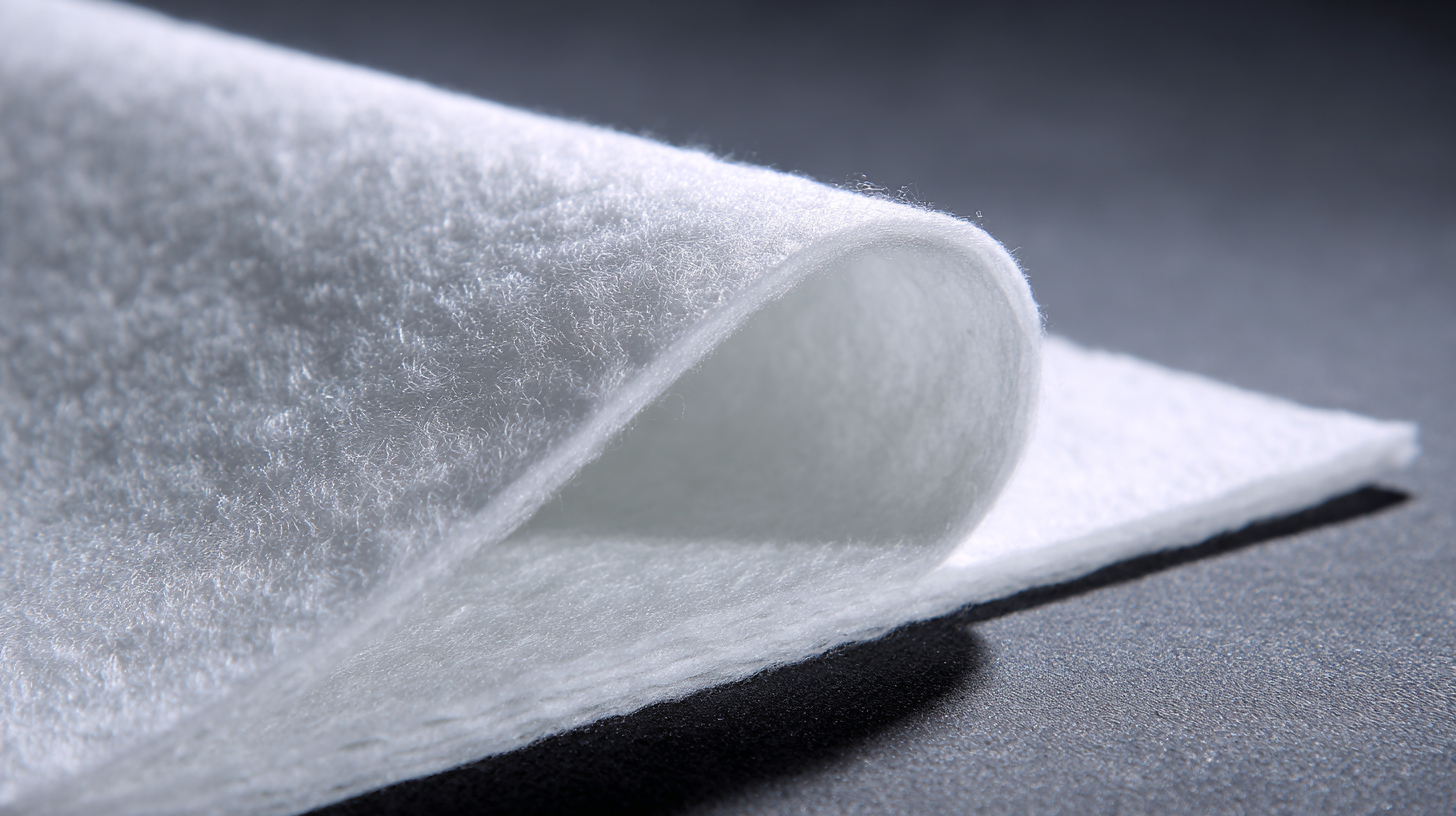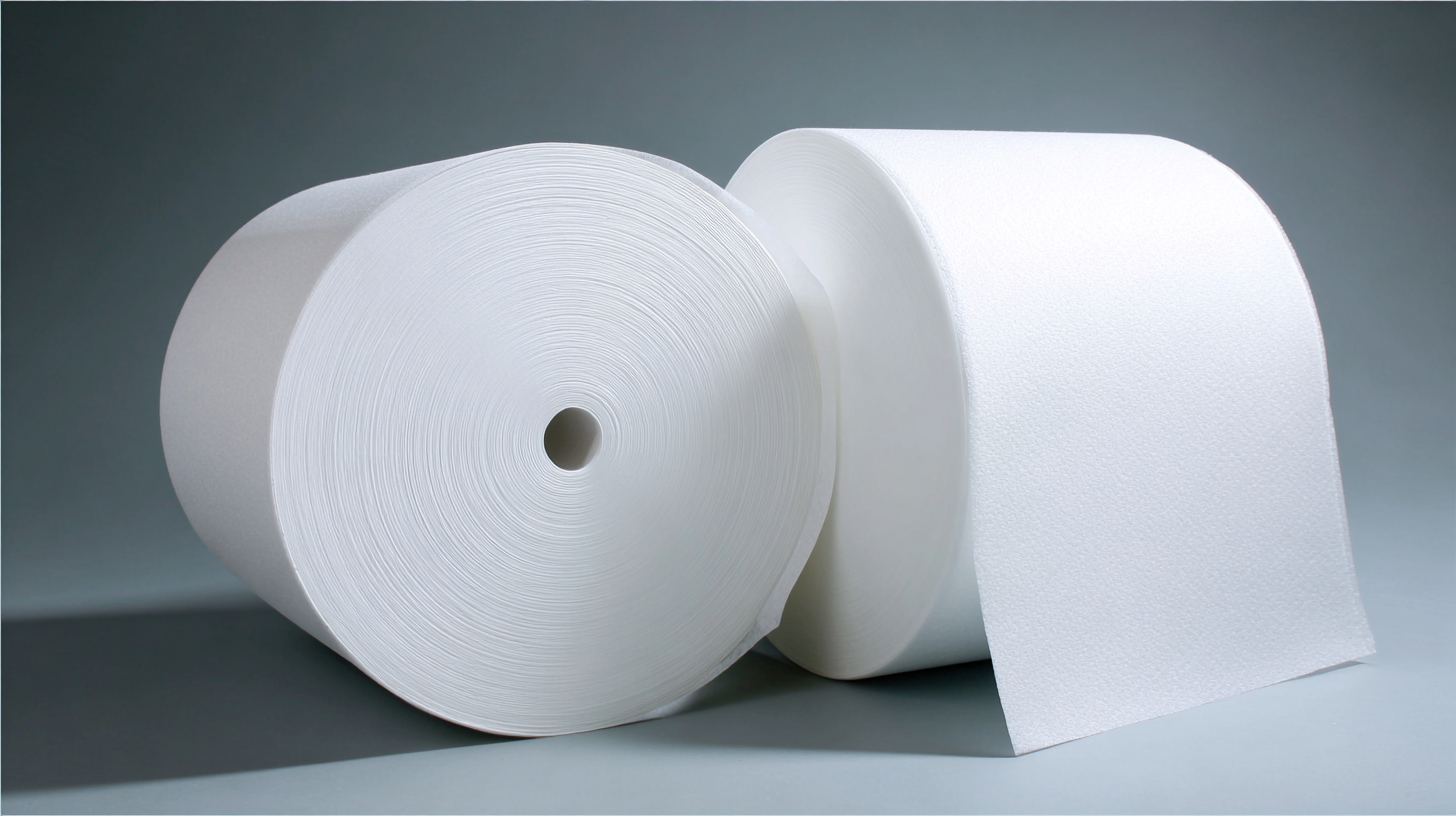Leave Your Message
In today's increasingly industrialized world, air quality has become a significant concern, with studies indicating that indoor air can be up to five times more polluted than outdoor air. The use of efficient air filtration systems is crucial in mitigating these health risks. According to the Environmental Protection Agency (EPA), indoor air pollution can lead to serious health issues, making the choice of proper filtration materials essential. By opting for Wholesale High Efficiency Air Filter Paper, businesses and consumers alike can achieve superior air filtration capabilities. This high-grade filter paper not only captures a greater percentage of airborne particles but also enhances the longevity of filtration systems, leading to lower maintenance costs and improved air quality. As the demand for cleaner air continues to rise, the benefits of adopting Wholesale High Efficiency Air Filter Paper are becoming increasingly evident, making it a vital component in the quest for healthier living environments.

High efficiency air filter paper plays a crucial role in improving indoor air quality, effectively reducing pollutants that can cause health issues. According to a report by the Environmental Protection Agency (EPA), indoor air can be up to five times more polluted than outdoor air, primarily due to the accumulation of dust, allergens, and volatile organic compounds (VOCs). Utilizing wholesale high efficiency air filter paper can capture up to 99% of microscopic particles, including pollen, mold spores, and pet dander, contributing significantly to a cleaner and healthier living environment.
Furthermore, the use of high efficiency air filter paper is essential in commercial settings where air quality standards are increasingly stringent. The American Society of Heating, Refrigerating and Air-Conditioning Engineers (ASHRAE) indicates that improved air filtration can lead to a 60% reduction in airborne particulate matter. This is particularly vital in hospitals and schools, where heightened sensitivities to air quality can impact overall health and cognitive functioning. By incorporating high efficiency air filter paper into HVAC systems, businesses not only comply with health regulations but also enhance the well-being of their employees and customers, creating a more productive atmosphere.
Understanding the efficiency of air filters is crucial for maintaining cleaner indoor air quality, and this is where the science behind air filter efficiency ratings and standards plays a vital role. Air filter performance is often quantified using various metrics, such as MERV (Minimum Efficiency Reporting Value) ratings, which range from 1 to 20. According to the American Society of Heating, Refrigerating and Air-Conditioning Engineers (ASHRAE), filters with MERV ratings above 13 can effectively capture 90% or more of particles in the 0.3 to 1 micron range, including pollen, dust, and smoke. This level of efficiency is essential for improving air quality in residential and commercial settings, especially in urban areas with higher pollution levels.
Moreover, high-efficiency filter papers are designed to meet these demanding standards by utilizing advanced filtration technology. For instance, a study by the Environmental Protection Agency (EPA) revealed that using high-efficiency filters can reduce particulate matter (PM2.5) concentrations indoors by up to 80%. This is particularly beneficial for vulnerable populations, such as children and individuals with respiratory conditions. As the market for wholesale high-efficiency air filter paper expands, understanding these efficiency ratings and their impact on air quality becomes increasingly important for consumers and businesses alike.
When it comes to maintaining clean air in commercial and residential spaces, the economic advantages of using wholesale high-efficiency air filter paper are significant. Purchasing in bulk not only reduces upfront costs but also ensures consistent quality that can enhance overall air quality. By investing in high-efficiency filters, businesses and homeowners can enjoy lower energy bills due to improved airflow and reduced strain on HVAC systems, leading to longer equipment life.

Tips: Before purchasing, analyze your specific air quality needs and filter efficiency ratings. Make sure to factor in the filter change frequency—less frequent replacements can lead to additional savings over time.
Moreover, by utilizing high-efficiency air filter paper, you can mitigate health risks associated with airborne pollutants, which can lead to reduced healthcare costs. Quality filters trap fine particles, allergens, and pollutants more effectively, which not only contributes to a healthier environment but can also reduce employee absenteeism due to illness. Thus, the initial investment in wholesale air filter supplies can yield substantial long-term savings.
Tips: Regularly check and maintain HVAC systems to ensure optimum performance and filter lifespan. Keeping records of air quality changes can help in making informed decisions for future purchases.
When it comes to maintaining air quality in commercial applications, the choice between high-efficiency air filters and standard filters can significantly impact overall performance. According to the U.S. Environmental Protection Agency (EPA), high-efficiency filters can remove up to 99% of airborne particles, including allergens and pollutants, while standard filters may only capture 50-70% of the same particles. This improvement in filtration efficiency not only leads to cleaner air but also promotes a healthier indoor environment for employees and customers alike.
Moreover, utilizing high-efficiency air filter paper in HVAC systems can reduce energy consumption by up to 15%, as noted in a report by the Department of Energy (DOE). The lower resistance to airflow means that HVAC units don't have to work as hard to circulate air, which translates to lower utility bills and extended equipment lifespan. In contrast, standard filters may cause airflow restrictions that increase energy costs and necessitate more frequent maintenance.
**Tips:** Consider regularly checking filter performance and replacing them according to the manufacturer's recommendations to maintain optimal efficiency. Additionally, investing in high-efficiency filters can lead to long-term savings, as fewer replacements and lower energy costs justify the initial higher expenditure on quality filters. Finally, don’t forget to assess the specific air quality needs of your commercial space, as this will help in determining the most effective filtration solution.
| Filter Type | Efficiency (%) | Lifespan (Months) | Cost per Unit ($) | Applications |
|---|---|---|---|---|
| High Efficiency Air Filter Paper | 99.5 | 12 | 10.00 | Commercial HVAC, Cleanrooms |
| Standard Air Filters | 85.0 | 6 | 6.00 | Residential HVAC, General Use |
| Ultra High Efficiency Filters | 99.99 | 18 | 20.00 | Hospital HVAC, Pharmaceutical |
The use of wholesale high efficiency air filter paper plays a crucial role in enhancing air quality while promoting sustainability. In an era where air pollution is a global concern, these filters effectively trap airborne particles, allergens, and pollutants, significantly reducing the amount of harmful substances released into the atmosphere. By utilizing advanced filtration technologies, high efficiency air filter paper ensures that only clean air circulates in our environments, benefiting both human health and the ecosystem.
Moreover, the production of air filter paper from sustainable materials contributes to environmental conservation. By reducing reliance on synthetic fibers, manufacturers can minimize waste and energy consumption during the production process. Additionally, high efficiency air filter paper is often recyclable or biodegradable, aligning with sustainable practices that aim to lower our carbon footprint. This dual benefit—ensuring cleaner air and supporting environmentally friendly materials—highlights the vital role that air filter paper plays in promoting a healthier planet for future generations.

